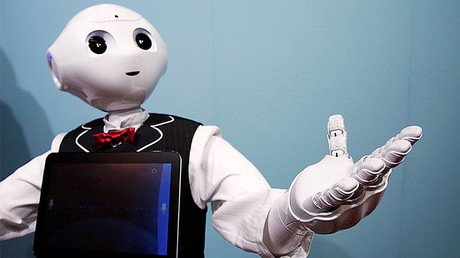Robots that take human jobs should pay taxes - Bill Gates

Microsoft co-founder and philanthropist Bill Gates has called for a tax on robots to make up losses due to automation.
“Certainly there will be taxes that relate to automation. Right now, the human worker who does, say, $50,000 worth of work in a factory, that income is taxed, and you get income tax, social security tax, all those things. If a robot comes in to do the same thing, you'd think that we'd tax the robot at a similar level,” the billionaire said in an interview with news website Quartz.
Governments should tax corporations’ use of robots to at least temporarily gear down the spread of automation and to fund other types of employment, according to Gates.
The revenue from this taxation could finance areas that are still expected to rely on humans, such education and health service, as well as elderly or child care.
“If you can take the labor that used to do the thing automation replaces, and financially and training-wise and fulfillment-wise have that person go off and do these other things, then you’re net ahead. But you can’t just give up that income tax because that’s part of how you’ve been funding that level of human workers,” Gates said.
READ MORE: Robots could take 250,000 public sector jobs by 2030, think tank warns
The idea promoted by the billionaire is not new. Last week, EU lawmakers considered a draft plan for a tax on robot owners. The bill was aimed to find an extra opportunity to pay for training workers who lost their jobs in the wake of robotization. However, the proposal was rejected.
Robotics & artificial intelligence part of post-Brexit Britain's industrial strategy https://t.co/TQ1CKCTui1pic.twitter.com/kHgDnvCOQ4
— RT (@RT_com) January 23, 2017
“You ought to be willing to raise the tax level and even slow down the speed of automation. Exactly how you'd do it, measure it, you know, it's interesting for people to start talking about now,” Gates said.
READ MORE: Robots could soon be looking after your granny, say academics
“Some of it can come from the profits that are generated by the labor - saving efficiency there. Some of it can come directly in some type of robot tax. I don't think the robot companies are going to be outraged that there might be a tax. It's OK,” added Gates.














